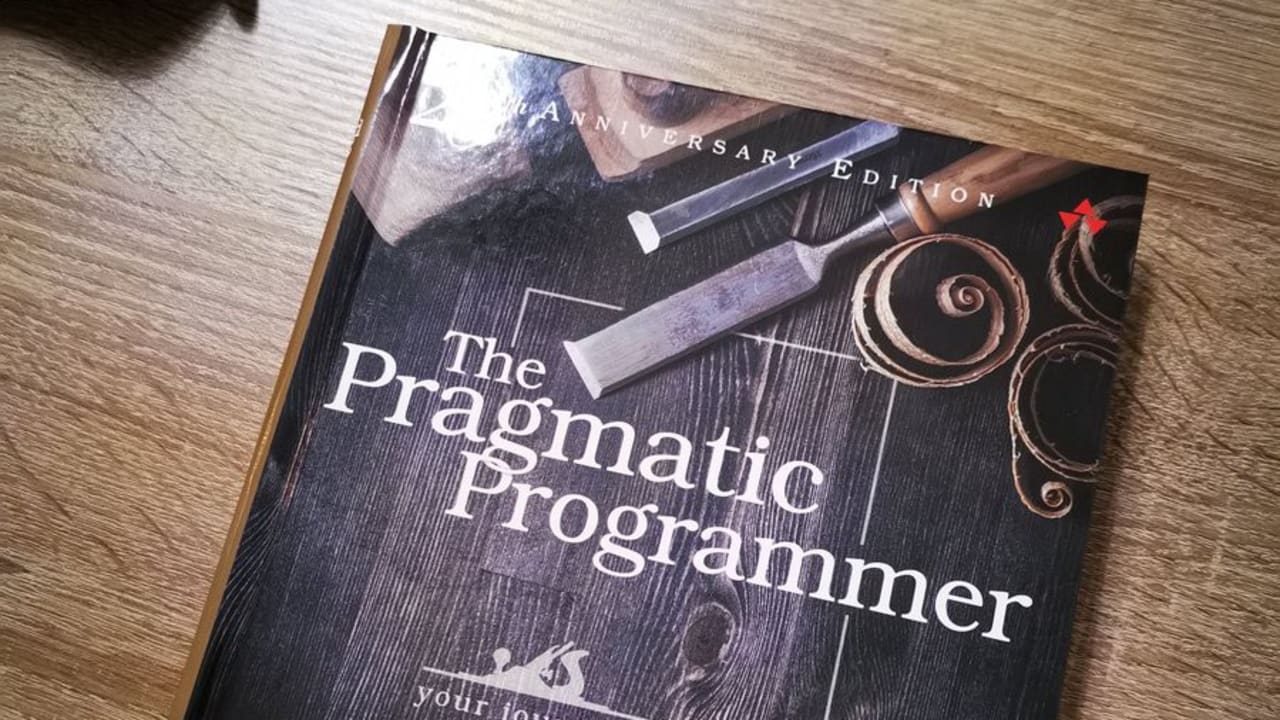A Masterpiece of Pragmatism: The Pragmatic Programmer
“The Pragmatic Programmer” is a timeless classic that has cemented its place as a must-read for software developers and engineers of all levels. Authored by Andrew Hunt and David Thomas, this book is more than just a guide; it’s a philosophy for those who seek excellence in their craft. First published in 1999, it has continued to inspire and educate countless programmers, standing the test of time as an essential reference in the ever-evolving world of software development.
It’s not a dry technical manual, but rather a collection of wisdom and practical advice, presented in a witty and engaging way. Whether you’re a seasoned coder or just starting out, this book has something to offer you.
What makes “The Pragmatic Programmer” special?
- Focus on mindset and principles: The book goes beyond syntax and algorithms, emphasizing the importance of a programmer’s attitude and approach to their craft. It encourages readers to be pragmatic, adaptable, and constantly learning.
- Timeless wisdom: Despite its age, the principles espoused in the book remain relevant in today’s ever-evolving software landscape. The focus on clean code, effective communication, and practical tools transcends specific technologies.
- Engaging and accessible writing: Hunt and Thomas’s writing style is conversational and humorous, making the book a pleasure to read. They use real-world anecdotes and relatable examples to illustrate their points, making complex concepts easy to grasp.
Hunt and Thomas have crafted a book that combines their extensive experience with a deep understanding of the challenges faced by software developers. They present their wisdom in a clear and accessible manner, making it suitable for both beginners and seasoned professionals. The book is divided into distinct sections, each covering essential topics that are critical to a programmer’s success.
One of the standout features of “The Pragmatic Programmer” is its focus on practicality. It provides concrete advice and techniques that can be applied immediately to enhance productivity and code quality. The authors introduce concepts like DRY (Don’t Repeat Yourself), YAGNI (You Ain’t Gonna Need It), and orthogonality, which have become fundamental principles in software development. These concepts are not just theoretical; they come to life through real-world examples and anecdotes.
The book also addresses the importance of automation, testing, and debugging, offering valuable insights into tools and strategies that can make a programmer’s life more efficient and effective. Furthermore, the authors emphasize the value of learning multiple programming languages, encouraging readers to broaden their horizons and adopt a polyglot mindset.
Beyond technical aspects, “The Pragmatic Programmer” delves into the often-overlooked soft skills that are essential for a programmer’s success. It discusses communication, teamwork, and maintaining a positive attitude, which are indispensable when working on complex projects in collaborative environments.
One of the most compelling aspects of this book is its relevance. Despite being over two decades old, the advice and principles presented by Hunt and Thomas remain as applicable today as they were when first written. The technology landscape may have evolved, but the core principles of pragmatism, simplicity, and continuous learning are timeless.
Key takeaways:
- Learn to learn: Embrace continuous learning and adapt to new technologies as they emerge.
- Don’t cargo-cult: Think critically about best practices and apply them in a way that makes sense for your specific context.
- Code for maintainability: Write clean, readable code that is easy for others to understand and modify.
- Communicate effectively: Express your ideas clearly and concisely, both in writing and in person.
- Automate what you can: Free yourself from repetitive tasks to focus on more creative and strategic work.
In conclusion, “The Pragmatic Programmer” is a masterpiece of pragmatism that every programmer should have on their bookshelf. It offers a treasure trove of wisdom, experience, and practical advice that can transform even the most inexperienced coder into a pragmatic and effective developer. Whether you’re just starting your programming journey or looking to refine your skills, this book will undoubtedly become your trusted companion and source of inspiration. Highly recommended!














Post Comment